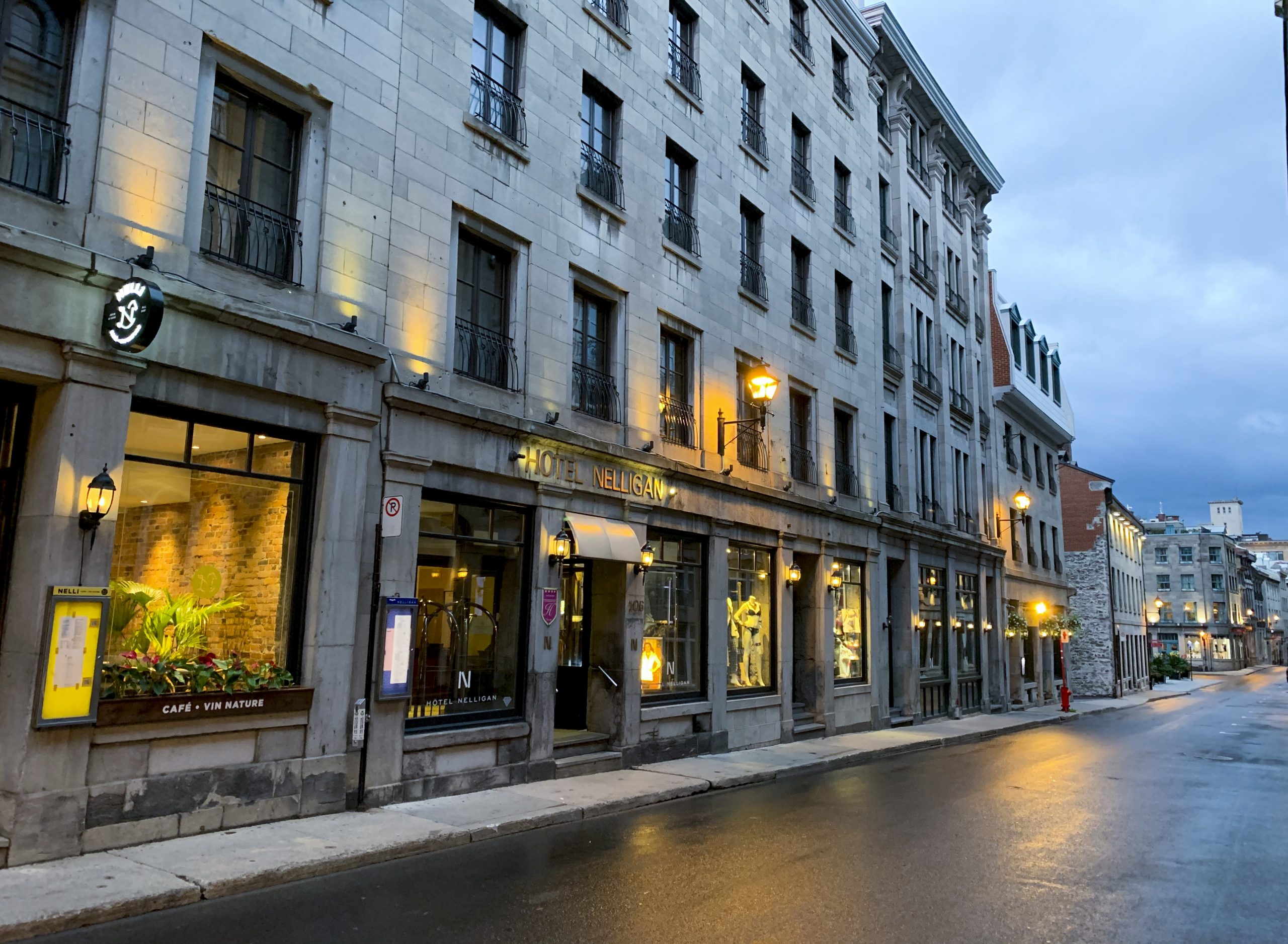In the aftermath of the COVID-19 pandemic, Canada’s tourism industry is facing a crisis greater than the combined impacts of Sept. 11, 2001, the SARS outbreak and the global financial crisis, according to a new report.
The depth of the crisis means it will be a long recovery for the tourist industry with potential shock waves for other areas of the economy, says Destination Canada, a Crown corporation whose mandate is to promote domestic tourism. The agency compiled new data for the report to be released Monday on an industry that is linked to one in 10 Canadian jobs, Destination Canada says.
“Tourism has a ripple effect into so many other parts of our quality of life as Canadians,” said Marsha Walden, president and chief executive officer of Destination Canada. “It’s one of those very few industries, maybe the only one, that can be found in every corner of this country.”
The report adds a new dimension to discussions about the pandemic’s uneven effects across different regions and sectors of the Canadian economy, for which limited data had previously been available. It also sheds light on the amount of time needed for certain key areas of Canada’s economy to recover.
Overall, the number of “active” businesses — one that is operating and has employees — in the sector declined by nine per cent between January and November of last year. Half a million people in the tourism industry lost their jobs in 2020, Walden said.
Within the tourism sector, travel services saw the biggest drop in active businesses with 31 per cent fewer firms operating. Rail, scenic and sightseeing transportation saw the second-biggest drop with a 14.9-per-cent decline.
The hotel industry suffered throughout 2020, with losses concentrated in Montreal, Toronto and Vancouver, whose downtown hotels had the lowest occupancies of any region in Canada. Revenues for hotels in those three cities fell 79 per cent in the last year for a total loss of $2.3 billion across the three cities, the report says.
To compile the data used in the report, Destination Canada conducted original research and relied on information from government and industry reports, Walden said.
The report doubles as a call to action for Canadians to offset the damage to the country’s tourism industry by taking domestic vacations once the public health situation improves. If enough Canadians shift their international travel plans to focus on domestic destinations, that could speed up recovery for the tourism sector by up to one year, the report states.
Without any major change in consumer spending habits, it would take five years for the industry to reach pre-pandemic levels, the report says. But reallocating two thirds of the dollars spent on international travel in 2019 to domestic travel would replace the estimated $19.4 billion shortfall in the industry in 2020 and sustain more than 150,000 jobs, the report says.
“Canadians have been sitting at home, saving a lot of money this year, which is great for individuals and not so great for the economy,” Walden said. “We really need them to get out there and travel the country and spend money across the country once it’s safe to do so.”
Guidatour, which sells walking tours of downtown Montreal and other areas, is one of the small tourism-dependent businesses whose revenues plummeted last year as its usual customer base of international tourists disappeared. The company’s revenues were down 95 per cent last year, said the company’s owner, Angele Vermette.
Prior to the pandemic, Guidatour employed eight people full-time and had a network of about 100 tour guides that worked on a freelance basis, Vermette said.
Guidatour sometimes arranged more than 100 tours per day, but during the pandemic there were often days when it didn’t give a single one, Vermette said.
“These are passionate people that love their job,” Vermette said. “Being a tour guide, you don’t do that for your retirement, you don’t do that for the pay, you do that because you love history and you love tourism, you love your city.”
Improving economic activity in Canada’s downtown centres, where Guidatour primarily operates, will be key to a recovery for the tourism sector as a whole, Walden said, because visitors to a region typically travel first to a city core before continuing on to other areas.
Vermette said her staff have been working on developing new programming, some of which could also appeal to locals, in order to capitalize on any uptick in travel later this year. With the rollout of the vaccine, Vermette said she was hopeful that Guidatour would have more customers this year, but she noted that sales still won’t be close to what the company saw in 2019.
Similarly, Frontiers North Adventures, a family-owned business that offers tours to Churchill, Man., where visitors can see local attractions like polar bears and beluga whales, has been changing its offerings to appeal to Canadians looking to take domestic vacations this year.
In the past, around 80 per cent of the company’s customer base has been made up of foreign travellers, who begin the tour in Winnipeg before flying to Churchill, said John Gunter, the company’s president. But anticipating another weak year for international travel, the company is adding flights to Churchill directly from Calgary and Montreal in the hopes of tapping into the domestic market for northern adventures.
“We had to rejig our offerings to be more attractive to domestic and local audiences,” Gunter said. “If we have only Winnipeg to rely on, then it’s going to be another year of losses.”

In a wide-ranging interview aired Sunday, Harry and Meghan described painful discussions about the colour of their son’s skin, losing royal protection and the intense pressures that led the Duchess of Sussex to contemplate suicide.
WATCH: https://toronto.citynews.ca/2021/03/07/harry-meghan-to-delve-into-tough-royal-split-with-oprah-2/
The interview with Oprah Winfrey was the couple’s first since they stepped down from royal duties and the two-hour special included numerous revelations.
Harry told Winfrey that he felt trapped by royal life and was surprised that he was cut off financially and lost his security last year. He also said he felt his family did not support Meghan, who acknowledged her naivete about royal life before marrying Harry, as she endured media attacks and false stories.
Meghan, who is biracial, described that when she was first pregnant with son Archie, there were “concerns and conversations about how dark his skin might be when he’s born.” The statement led Winfrey to ask “What,” incredulously and sit in silence for a moment.
Meghan declined to say who had this conversation with Harry that he relayed to her, saying revealing their name would be “very damaging.”
“I was trapped, but I didn’t know I was trapped. My father and my brother, they are trapped.” – Harry
In a rare positive moment in the interview, Harry and Meghan revealed their second would be a girl and that she would be born sometime in the summer.
Their first child, son Archie, turns 2 in May.
The couple also revealed that they will likely not have any more children. “Two is it,” said Meghan.
Harry said “to have a boy and then a girl, what more can you ask for? But now we’ve got our family. We’ve got the four of us and our two dogs.”
The interview opened with Winfrey gushing over Meghan’s pregnancy and lamenting that COVID-19 protocols kept them from hugging.
The interview aired Sunday night in the United States, a full day before it will air in Britain. The revelations aren’t over: Winfrey teased additional bits of the interview would be shown Monday morning on CBS.
In response to a question from Winfrey, Harry said he wouldn’t have left royal life if he hadn’t married Meghan, but that it was their relationship that revealed the strictures of royal life.
“I wouldn’t have been able to, because I myself was trapped,” Harry said. “I didn’t see a way out.
“I was trapped, but I didn’t know I was trapped,” Harry said, before adding, “My father and my brother, they are trapped.”
Harry acknowledged that he does not have a close relationship presently with his brother William, who is heir to the throne after their father, Prince Charles.
The prince disputed rumours that he intentionally blindsided his grandmother, Queen Elizabeth II, with his decision to split. He suspects the rumours came from the institution.
“I’ve never blindsided my grandmother,” he said. “I have too much respect for her.”
Meghan, too, was complimentary toward the queen, despite saying at one point she realized some in the palace were willing to lie to “protect other members of the family.”
“The queen has always been wonderful to me,” Meghan said.
“It’s easy to have an image of it that is so far from reality. And you’re being judged on the perception, but you’re living the reality of it.” – Meghan
Winfrey at various points in the interview ran through headlines about Meghan and at one point asked about the mental health impact. Meghan responded that she experienced suicidal thoughts after marrying Harry, but when she asked to get help for her mental health, she was told it would be bad for the family if she did.
Meghan said she grew concerned about her son not having a royal title because it meant he wouldn’t be provided security.
Meghan said digesting everything during while pregnant was “very hard.” More than the “prince” title, she was the most concerned about her son’s safety and protection.
“He needs to be safe,” a teary-eyed Meghan recalled. “We’re not saying don’t make him a prince or princess, whatever it’s going to be. But if you’re saying the title is going to affect their protection, we haven’t created this monster machine around us in terms of click bait and tabloid fodder. You’ve allowed that to happen, which means our son needs to be safe.”
Meghan said it was hard for her to understand why there were concerns within the royal family about her son’s skin colour. She said it was hard for her to “compartmentalize” those conversations.
Sunday’s interview special opened with Meghan describing how naive she was about the ground rules of royal life before she married her husband, Harry, nearly three years ago. “I didn’t fully understand what the job was,” she said. She also noted that she did not know how to curtsy before meeting Queen Elizabeth II for the first time, and didn’t realize it would be necessary.
“I will say I went into it naively because I didn’t grow up knowing much about the royal family,” Meghan said. “It wasn’t something that was part of conversation at home. It wasn’t something that we followed.”
Meghan said she and Harry were aligned during their courtship because of their “cause-driven” work. But she did not fully comprehend the pressure of being linked the prestigious royal family.
“It’s easy to have an image of it that is so far from reality,” she said. “And that’s what was really tricky over those past few years, is when the perception and the reality are two very different things. And you’re being judged on the perception, but you’re living the reality of it. There’s a complete misalignment and there’s no way to explain that to people.”
At the top of the interview, Winfrey ran through several key points: that the production was following strict COVID-19 protocols, no topic was off limits and that Meghan and Harry were not being paid for the special.
Royal interviews that aren’t tied to a specific topic are rare, and prior televised sessions have often proved problematic. Prince Andrew’s 2019 BBC interview about his links with convicted sex offender Jeffrey Epstein led to his own departure from royal duties after he failed to show empathy for Epstein’s victims.
Harry and Meghan’s departure from royal duties began in March 2020 over what they described as the intrusions and racist attitudes of the British media toward the duchess.
In Britain, the interview is seen as poorly timed. It will air while Harry’s 99-year-old grandfather Prince Philip remains hospitalized in London after undergoing a heart procedure.
It is unclear what public reaction, if any, the queen and other royal family members will have to Sunday’s interview. The U.K.’s Sunday Times newspaper, citing an anonymous source, reported that the queen would not watch it.
On Wednesday, the palace said it was launching a human resources investigation after a London newspaper reported that a former aide had accused Meghan of bullying staff in 2018.
A spokesman for the duchess said she was “saddened by the latest attack on her character, particularly as someone who has been the target of bullying herself.”
Harry and Meghan’s departure from royal life was supposed to be reviewed after a year. On Feb. 19, Buckingham Palace confirmed that the couple would not return to royal duties and Harry would relinquish his honorary military titles – a decision that made formal, and final, the couple’s split from the royal family.
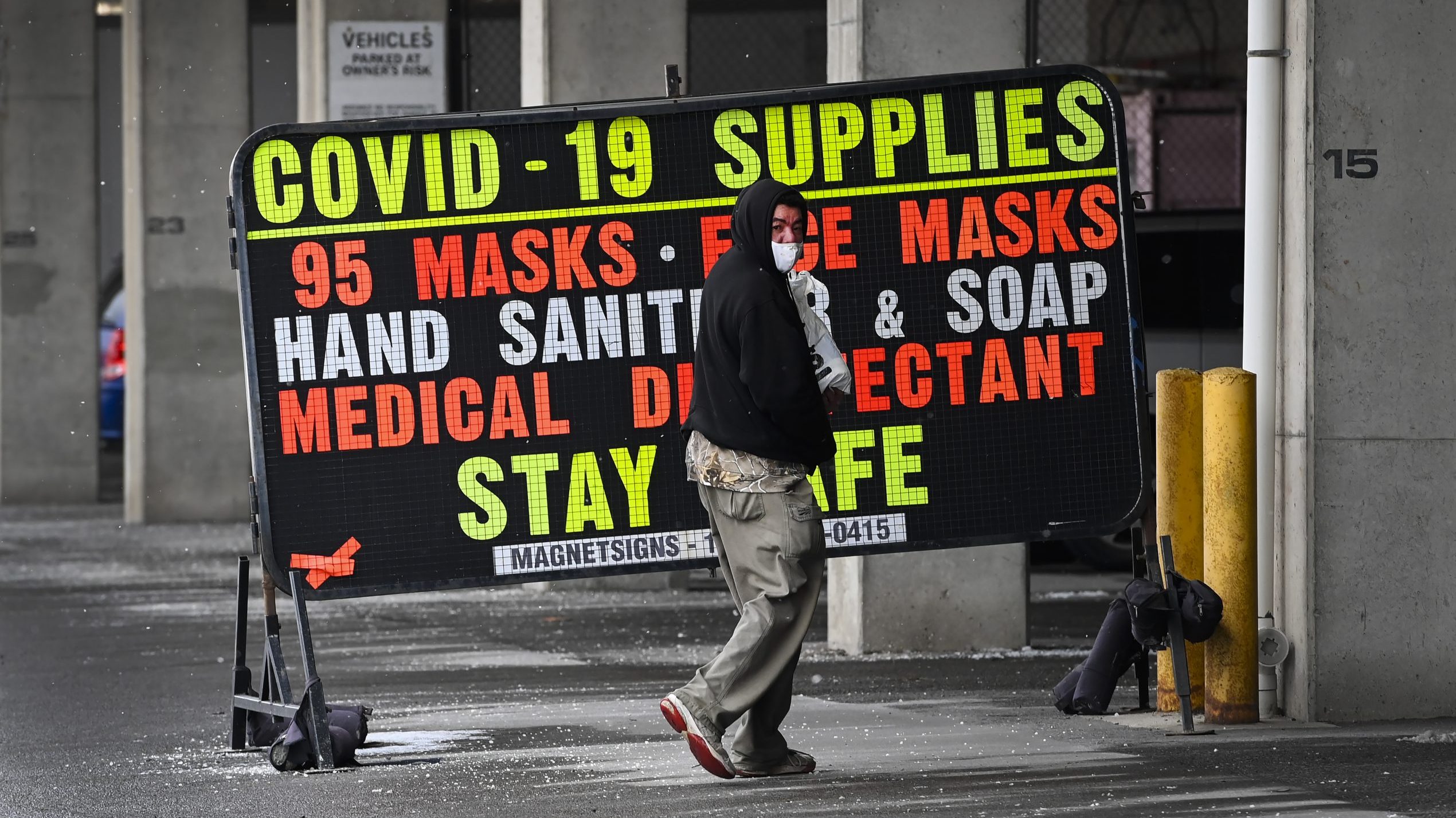
Ontario’s colour-coded framework that details COVID-19 restrictions can be confusing. Here’s what you need to know.
WATCH VIDEO: https://toronto.citynews.ca/2021/03/05/grey-zone-red-faq-ontario-covid19/
Toronto and Peel will be in the grey-lockdown zone, the highest level of restrictions, on Monday.
Currently, York, Durham and Halton region are in the red zone.
Here’s a detailed list of what is open/closed in the grey zone vs red zone:
Essential stores (supermarkets, pharmacies, etc.)
Grey: Open with 50 per cent capacity, passive screening of customers and stores must post capacity limit.
Red: Open with 75 per cent capacity, passive screening of customers and stores must post capacity limit.
Retail stores
Grey: Open with 25 per cent capacity, passive screening of customers and stores must post capacity limit
Red: Open with 50 per cent capacity, passive screening of customers and stores must post capacity limit
Restaurants
Grey: Open for take-out/delivery, closed for indoor/outdoor dining
Red: Open for dining between 5 a.m. and 10 p.m. (Indoors: max 10 people with 2m distance between tables, Outdoors: Max parties of 4 at each table)
Gyms
Grey: Closed
Red: Open with 10 people indoors, 25 people outdoors
Personal Care Services
Grey: Closed
Red: Open and guests must be screened
Organized Events/Gatherings
Grey: No indoor gatherings, outdoor gatherings limited to 10 people and single households can pair with another one.
Red: Five people indoors, 25 people outdoors
Details on the rest of the zones are here:

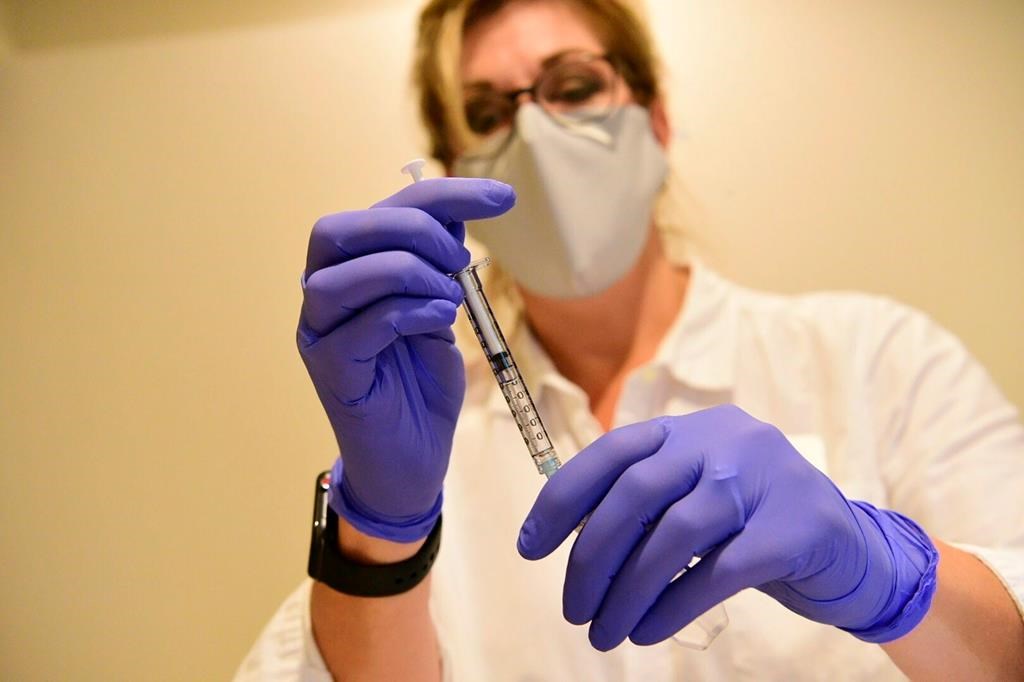
Health Canada says a decision on the Johnson & Johnson vaccine will be announced in the “next few days.”
The word came Thursday from Dr. Marc Berthiaume, director of the regulator’s bureau of medical sciences.
Once approved, the J&J product would become the fourth vaccine available for use in Canada. It was approved last weekend in the United States.
Coupled with a new recommendation Thursday that provinces delay second doses of the other vaccines up to four months, Canada is likely to be able to offer one dose of vaccine to every adult before Canada Day.
On Tuesday, a Biden administration official confirmed that drugmaker Merck & Co. will help produce rival Johnson & Johnson’s newly approved coronavirus vaccine in an effort to expand supply more quickly.
Health Canada officials say they are working with the company and a million doses of the J&J vaccine are expected in Canada by September, with deliveries beginning in the second quarter of the year.
The J&J vaccine has caused some concerns for Catholics after the Archdiocese of New Orleans released a statement on February 26, saying it is “morally compromised” because it “uses the abortion-derived cell line in development and production of the vaccine…”
The Vatican issued its own guidance in December, saying that when no other “ethically irreproachable” options are available, it is “morally acceptable” to use COVID-19 vaccines developed from cell lines derived from aborted fetuses.
Johnson & Johnson’s pharmaceutical company, Janssen Canada, responded saying: “There is no fetal tissue in our Janssen COVID-19 vaccine candidate. Our COVID-19 vaccine is an inactivated/non-infective adenovirus vector (similar to a cold virus), which codes for the coronavirus “spike” (S) protein.
With files from Michael Talbot
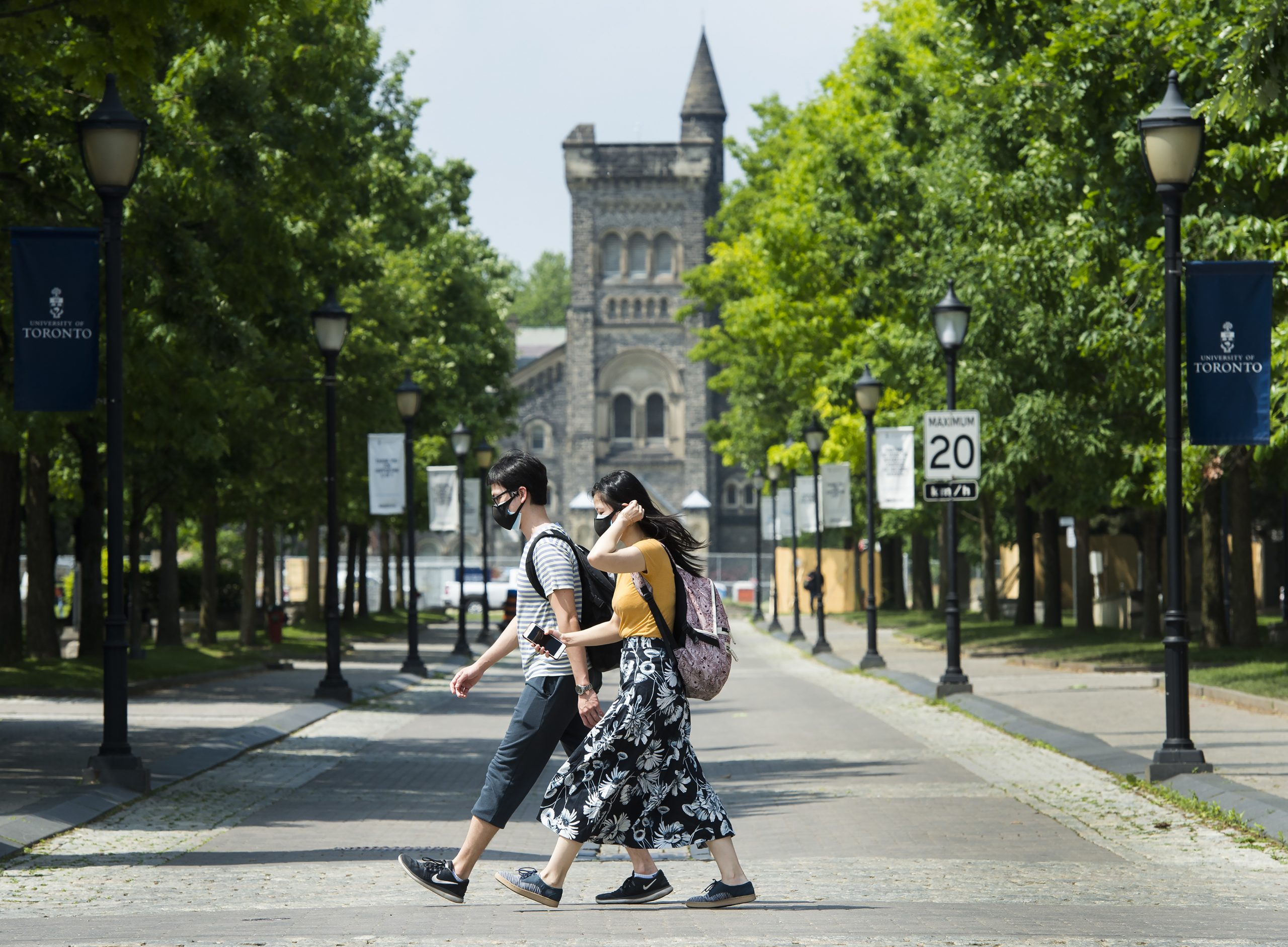
Some universities in Ontario have started planning for a return to in-person learning this fall as COVID-19 vaccinations ramp up.
The pandemic forced schools to quickly move classes online last year but several said ongoing immunizations have sparked hope that a return to physical classrooms in September will be possible.
In London, Ont., Western University said it expects to return to face-to-face instruction and resume on-campus activities when the fall semester begins.
“As vaccines become more readily available over the spring and summer and as the Western community continues to remain vigilant both on and off campus, we’re increasingly confident of these plans,” university president Alan Shepard said in a statement.
Shephard noted that the university has seen the benefits of remote work and online instruction over the past year.
“As we plan for the fall, we’ll be looking at ways to incorporate the best of what we’ve learned into the curriculum and into our work where it makes the most sense,” he said, adding that the university would be working with the local public health unit as it makes its fall plans.
Western has had several COVID-19 outbreaks at its campus residences, with the most recent one declared on Tuesday after seven cases at its Essex Hall residence were confirmed.
In Kingston, Ont., Queen’s University also plans to resume some on-campus learning in the fall.
“As part of the hope to be back to some degree of normalcy by fall, the university is planning that many small classes, labs, and tutorials will be offered in-person, with appropriate safety protocols in place,” it said in a statement.
The university said it expects most large classes will still be delivered remotely if COVID-19 restrictions remain in place throughout the fall, but it was hopeful that the winter term would bring more in-person learning.
“Depending on the vaccine distribution timeline, government regulations, and public health guidance, Queen’s is cautiously optimistic that on-campus activities will return to normal in the winter term,” it said.
The University of Toronto said it would follow public health guidelines in Toronto and Mississauga, Ont., where its campuses are located.
It was optimistic, however, that an increase in vaccinations and falling case counts would allow for more in-person activities to resume in the fall.
“Last year taught us a lot about the importance of planning and preparedness, and the need to be flexible in unpredictable circumstances,” the university said.
Ryerson University in downtown Toronto said it had not yet made a decision for fall learning, noting that it was planning for a number of scenarios.
“We will not ask anyone to come to campus until our government and public health agencies have told us that it’s safe to open and that the safety and well-being of our community can be assured,” said spokeswoman Lindsey Craig.
Both Toronto and Peel Region are currently under a stay-at-home order and have been the top COVID-19 hot spots in Ontario throughout the pandemic.
As universities make their plans, at least one student said the thought of in-person learning in the fall was somewhat stressful.
Kacey Niu, a first-year Western student, said she has been living in Toronto with family while learning online.
“My dad actually doesn’t want me to sign a lease (to live in London) until July or August because he still doesn’t think they could make it happen,” the 18-year-old said. “He’s definitely worried about students not being careful.”
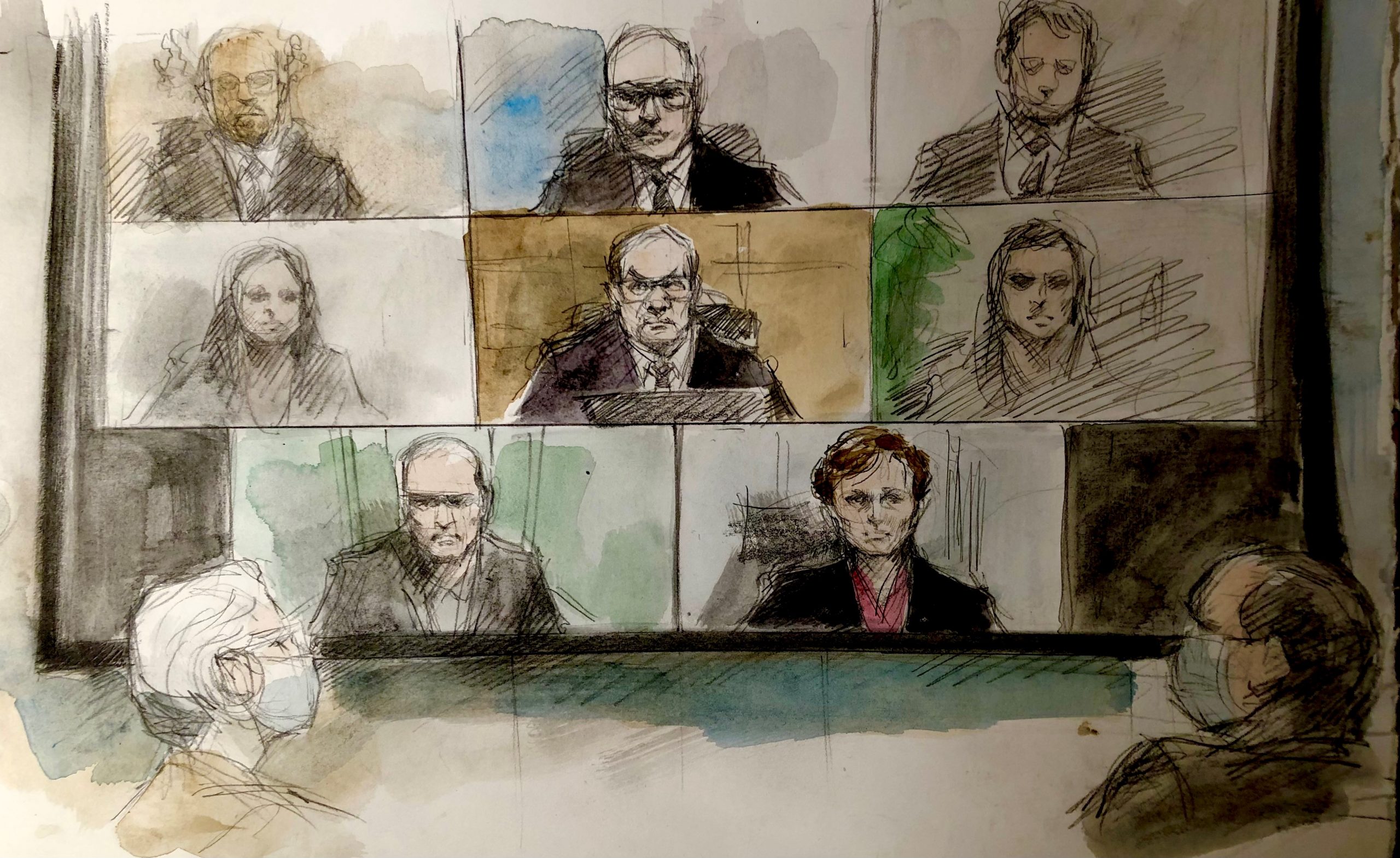
The pandemic has put a stop to courtrooms packed with lawyers, media, victims and the public, waiting for the judge to issue a verdict in a high-profile case, but COVID-19 has ushered in a new era in Canadian justice – trial over video call – and some legal experts believe it could change the system for the better.
“Zoom and trials and how we’re accomplishing that — the system will never go back,” predicted Kim Schofield, a criminal defence lawyer.
Nearly 6,000 people watched a YouTube live stream as Justice Anne Molloy read her verdict in the Toronto van attack trial on Wednesday. It would’ve taken roughly 120 courtrooms filled to capacity to accommodate the thousands who watched the verdict.
“As a cornerstone of democracy…the openness of the court system has been left in the Dark Ages,” noted Schofield.
Prior to the pandemic, while defendants could appear from jail by video link, a fully online trial was out of the norm.
It is still forbidden to record or broadcast a court proceeding. However, there does appear to be a public appetite to watch the workings of the legal system.
Though thousands of people viewed the verdict yesterday, since the proceeding was only accessible with a direct link, others may not have been able to join.
“Judgments are important, rulings are important for the public to understand that justice is being served,” Schofield said.
In November 2020, more than 20,000 people watched online as off-duty Toronto police officer Michael Theriault was sentenced in Ontario Superior Court for assaulting Dafonte Miller.
That same month, the weeks-long van attack trial got underway virtually. Justice Molloy presided over the trial from her home, the media were granted access by a Zoom link and the public could watch on projector screens set up at the Metro Toronto Convention centre and a Front Street office tower.
Beyond the public, there are other parties to consider if virtual trials are to become the new normal. Namely victims and their families, who often find support and solidarity when coming together.
On Wednesday, they gathered inside the University Avenue courthouse to watch the live stream as the van attack killer received his verdict. Survivor Catherine Riddell attended with her niece.
“We really didn’t want to be alone, so when we got here and found all these people we were so grateful that we could share this moment with them,” she said.
Nick D’Amico, brother of victim Anne Marie D’Amico, noted that he appreciated he could watch court proceedings from home with the support of his family, but said it shaped how he viewed the trial.
“We missed out on the experience of being in the courtroom and feeling as anyone would feel as they were going through the situation,” he explained.
A virtual trial may also be more cost effective for defendants, because their lawyers could avoid billing them for the hours spent waiting at a courthouse for their cases to be called.
The magnitude of the van attack trial made it a compelling virtual trial test. Every day, the court’s technical and support staff navigated the needs of witnesses, along with their presentations, and then examination by prosecutors and defence.
After the verdict was delivered, both sides said they were pleased with how smoothly the trial rolled out.
Crown prosecutor Joseph Callaghan thanked court staff for ensuring the justice system could be transparent during the pandemic.
Boris Bytensky, lawyer for the defence, said he didn’t think the trial would have turned out any differently for his client had it been in person, despite the occasional technical glitch.
“I am a convert to Zoom, I thought that the technology worked great,” said Bytensky. “It proved that we could do a serious cases over zoom.”

Walter Gretzky, the ultimate Canadian hockey dad who taught and nurtured the Great One, has died. He was 82.
The father of Wayne Gretzky became a name himself, a constant in Wayne’s world. As Wayne’s star ascended, Walter remained a blue-collar symbol of a devoted hockey parent in a country filled with them.
Wayne Gretzky confirmed his father’s death on Thursday night with a social media post.
“It’s with deep sadness that Janet and I share the news of the passing of my dad,” said Wayne. “He bravely battled Parkinson’s and other health issues these last few years, but he never let it get him down.
“He truly was the Great One and the proudest Canadian we know” – Wayne Gretzky
The two were also often intertwined, their father-son story used in commercials from Tim Hortons to Coca-Cola. And following in the footsteps of Alexander Graham Bell, they made Brantford, Ont., famous.
Walter was celebrated for far more than just fathering a superstar, however. His down-to-earth, no-airs approach to life and devotion to his family struck a chord with Canadians.
“Sometimes, I swear to you, I have to pinch myself to make sure I’m not dreaming,” Walter wrote in his 2001 autobiography “Walter Gretzky. On Family, Hockey and Healing.”
“Wayne says the same thing.”
Walter’s celebrity status increased after making a remarkable recovery from a stroke suffered in 1991. His autobiography and a 2005 made-for-TV movie told the story.
SON OF IMMIGRANTS
Walter Gretzky was the son of immigrants – a Polish mother and Russian father – who started a vegetable farm in 1932 in Canning, Ont., just outside Brantford, on the Nith River, where Wayne learned to skate when he was two. They bought it for $600.
Walter’s father Tony, whose parents had emigrated to the U.S., came to Canada from Chicago to enlist during the First World War with his name switching to Gretzky from Gretsky because he did not know how to write in English. Walter’s mother Mary came to Canada by herself in 1921 as an 18-year-old.
Walter’s parents met in Toronto in the 1930s. He was the fifth of seven children.
He played minor hockey in Paris, Ont., then junior B for four years in Woodstock. He went on to play some senior hockey but said he wasn’t good enough to play pro.
Walter met Phyllis, his wife to be, at a wiener roast at the family farm. She was 15 at the time. Three years later, they got married.
Wayne was the first born in 1961, followed by Kim, Keith, Glen and Brent. Keith and Brent also played professional hockey.
The same year as Wayne was born, Walter fractured his skull in a work accident as a Bell lineman. He spent some time in a coma and was off work for 18 months. Left deaf in his right ear, he was eventually transferred to another Bell department and became an installer/repairman.
The winter when Wayne was four, his father turned the backyard of their Brantford home into a rink which young Wayne called The Wally Coliseum. From the time he was a tot, Wayne wanted to do nothing but play hockey.
Walter decided to make his own rink to avoid having to freeze standing outdoors at some outdoor rink elsewhere – or sit in his car with the engine running to get some heat – while Wayne skated. Gas was too expensive, he said.
“It truly, truly was self-preservation,” he explained.
Walter fed his eldest child’s obsession, recruiting bigger kids for Wayne to practise against in the backyard rink, and finding him a spot on a team of 10-year-olds when he was six.
“You knew he was good at his age at what he was doing,” Walter said in a 2016 interview. “But to say that one day he’d do what he did, you couldn’t say that. Nobody could.”
Wayne recalled crying after that first year of organized hockey when he didn’t get a trophy at the year-end banquet.
“Wayne, keep practising and one day you’re gonna have so many trophies we’re not going to have room for them all,” his dad said.
HARD WORK PAYS OFF
Walter preached an old fashioned ethic – hard work pays off.
After a bad game when he was 11, Wayne got a chewing out from his dad: “People are going to judge you on how you perform every night. Never forget that.”
The NHL star recalls getting a similar earful when he was 21, during the 1983 Stanley Cup playoffs.
“I don’t know where I’d be without him, but I know it wouldn’t be in the NHL,” Wayne said in his autobiography.
“I just think I told him to play good,” said Walter.
At times, hockey got in the way. Walter recalled missing the 1972 birth of Brent, their youngest, because Wayne was playing at a big minor tournament south of the border.
“Phyllis remembers that when I walked into her room in the maternity ward, the first thing I said to her was ‘We won, we won!”‘ he wrote. “She looked at me like I was crazy and said ‘It’s a boy, Walter.’ I guess I have to admit that sometimes I took my devotion as a hockey dad a little too far!
“But of course, I welcomed my brand new son with open arms – another budding hockey player, after all.”
Walter drove one old blue Chevy station wagon after another – calling each the Blue Goose – until it clocked about 200,000 kilometres or fell apart. He called it a “reliable car for a family of seven.”
Wayne bought his father a blue Cadillac for his parents’ 25th wedding anniversary.
“My hero as a kid was a man with constant headaches, ulcers and ringing in his ears,” Wayne wrote. “He stays in the same house driving the same car – teaching kids the same way he always has, believing in the same things he always had.
“I’ve sometimes said that everything I have I owe to hockey, but I guess that’s not true. Everything I have I owe to them (his parents).”
“On Family, Hockey and Healing” was reproduced in paperback when the movie came out. In the introduction, Walter answered a question: What’s it like being Wayne Gretzky’s dad?
“I say that mostly it’s been fantastic beyond my wildest dreams,” he wrote. “It’s given me the chance to travel widely, meet amazing people and do things that I never would have had the opportunity to do otherwise.
“I love to tell stories, and believe me, these experiences have given me some good ones! It’s all been a great adventure, and I’ve been happy to share it with my family and friends.”
But he said there was another side.
“It’s a privilege but also a responsibility that has to be handled carefully,” he wrote. “Living so close to the spotlight, you can be a magnet for some pretty strange things, and we’ve certainly seen it all: the good, the bad and the ugly,” he wrote.
That was demonstrated in 2020 after some of Wayne’s memorabilia was stolen from his father’s home, which was packed with souvenirs and other mementos.
Police eventually recovered several items including game-used sticks, hockey gloves, pants, jerseys and the NHL’s Player of the Year award from the 1983-84 season. The estimated value of the recovered property was believed more than US$500,000.
Arrests were made in the case.
TRUE TO HIMSELF
Walter travelled afar, including Europe, to watch his sons play hockey, and was a regular visitor to Phoenix after Wayne took over as head coach of the Coyotes in 2005.
He recalled being on a bullet train during the 1998 Nagano Olympics. In a good mood, he stated dancing around the car singing “When Irish Eyes are Smiling.” When he took off his cap at the behest of a friend, a Japanese woman put some money in it.
And while being Wayne’s father opened doors, he stayed true to himself.
In Paris to see a horse owned by Wayne and Bruce McNall run, he and a longtime friend, Charlie Henry, were stunned by the huge rooms they were booked into at the Ritz-Carlton. The two opted to stay in one room, cancelling the other.
He was a much sought-after speaker by groups organizing sports awards dinners, and he worked tirelessly as national spokesman for the Heart and Stroke Foundation of Canada. He was named to the Order of Canada in 2007.
In 2010, Walter carried the Olympic torch on the last day of the Olympic relay in the leadup to the opening ceremonies in Vancouver, where Wayne lit the Olympic flame.
He was 53 when he suffered his stroke, just a few months into retirement after 34 years at Bell. He wasn’t expected to live through the night. But he did, and it changed his life.
He lost much of his memory and it took time to get snippets of it back.
“Those were dark times,” he wrote about the early days after the stroke, “and I wouldn’t want to go back there for anything in the world. It’s an awful thing not to know who or where you are, to feel confused and hopeless and not know whether you are ever going to be able to do all the things your used to to.”
Hockey helped his recovery as he started working with kids in the Brantford Minor Hockey Association. The four- and five-year-olds used to call him Wally.
In his remaining years, he was more outgoing and carefree. After one game when his minor hockey team was downcast, he invited everyone to his home to see Wayne’s memorabilia. There were 61 of them. He also became an avid golfer.
He’d been a hyper chain-smoker before the stroke. He gave that up, while devoting more of his time to worthwhile causes.
“`I really don’t like to sit still for too long,” he said. “I’m most comfortable when I’m active.”
Walter is also survived by numerous grandchildren and great-grandchildren.
Phyllis died of lung cancer in 2005.

A national panel of vaccine experts recommended Wednesday that provinces extend the interval between the two doses of a COVID-19 shot to up to four months when faced with a limited supply, in order to quickly immunize as many people as possible.
The National Advisory Committee on Immunization issued updated guidance for the administration of all COVID-19 vaccines currently approved for use in Canada.
Extending the dose interval to four months will create opportunities to protect the entire adult population against the virus within a short timeframe, the panel said in releasing the recommendation.
As many as 80 per cent of Canadians over 16 could receive a single dose by the end of June simply with the expected supply of Pfizer-BioNTech and Moderna vaccines, the panel said.
The addition of the newly approved Oxford-AstraZeneca vaccine to the country’s supply could mean almost all Canadians would get their first shot in that timeframe, but the federal government has not yet said how many doses of that vaccine will be delivered in the spring and how many in the summer.
“The vaccine effectiveness of the first dose will be monitored closely and the decision to delay the second dose will be continuously assessed based on surveillance and effectiveness data and post-implementation study designs,” the panel wrote.
“Effectiveness against variants of concern will also be monitored closely, and recommendations may need to be revised,” it said, adding there is currently no evidence that a longer interval will affect the emergence of the variants.
A spokesperson for Ontario’s Minister of Health says the government welcomes the updated direction.
“This will allow Ontario to rapidly accelerate its vaccine rollout and get as many vaccines into arms as quickly as possible and, in doing so, provide more protection to more people,” read a brief statement.
The committee’s recommendation came hours after Newfoundland and Labrador said it will extend the interval between the first and second doses to four months, and days after health officials in British Columbia announced they were doing so.
Manitoba also said Wednesday it will delay second doses in order to focus on giving the first shot to more people more quickly.
THE BRITISH AND ISRAELI STUDY
Studies from Israel and the United Kingdom showed that a single dose of the Pfizer-BioNTech vaccine significantly reduced COVID-19 infections, helping to guide British Columbia’s decision to delay the second dose of vaccines by four months.
B.C. provincial health officer Dr. Bonnie Henry has said the plan is based on research in the two countries as well as evidence collected by the BC Centre for Disease Control and in Quebec.
A study published Feb. 24 by a team at the University of Cambridge in the U.K., which has not yet been peer-reviewed, suggests that a single dose of the Pfizer-BioNTech vaccine can reduce the number of asymptomatic COVID-19 infections by 75 per cent.
The team examined thousands of COVID-19 test results of unvaccinated and vaccinated health-care staff, who showed no signs of infection, at the university hospital over a two-week period in January.
The study found that 26 out of 3,252 tests, or 0.8 per cent, from unvaccinated workers were positive. In comparison, 13 out of 3,535 tests, or 0.37 per cent, from vaccinated staff were positive less than 12 days after immunization, and four out of 1,989 tests, or 0.2 per cent, from vaccinated workers were positive more than 12 days after the shot.
The findings suggest a fourfold decrease in the risk of asymptomatic COVID-19 infection among health-care workers who were vaccinated more than 12 days earlier, or 75 per cent protection.
The U.K.’s Joint Committee on Vaccination and Immunization said in December that the second dose of either vaccine could be given up to 12 weeks after the first dose.
Another recent study in the U.K. concluded that the Oxford-AstraZeneca vaccine is more effective when the second dose is delivered later. The research, published in peer-reviewed medical journal The Lancet on Feb. 19, found the vaccine is 81 per cent effective when its second dose is given three months after the first, compared with 55 per cent efficacy after six weeks.
In Israel, researchers studied the effects of a single dose of the Pfizer-BioNTech vaccine and published their findings in The Lancet on Feb. 18, determining that it was 85 per cent effective against symptomatic COVID-19 infections.
The study authors analyzed data from 7,214 health-care workers who were vaccinated at Israel’s largest hospital, the Sheba Medical Centre. They saw an 85 per cent reduction in symptomatic infections between 15 and 28 days after the first dose.
The manufacturers, for their part, provide different guidelines for the time between doses. Pfizer-BioNTech recommends three weeks, Moderna proposes four weeks and Oxford-AstraZeneca calls for eight to 12 weeks.
But the companies shouldn’t be the ones determining the appropriate interval, said Dr. Danuta Skowronski, an epidemiology lead at the BC Centre for Disease Control.
“We shouldn’t ask the manufacturer for their blessing in doing this. That’s not their role,” she said.
“It really is squarely the responsibility of public health authorities to do that full benefit/risk analysis for their population.”
Henry has said that the manufacturers completed their clinical trials according to a short timeline in order to get the vaccines to market as quickly as possible.
Skowronski led the B.C.-based research that underpinned the province’s plan, including the finding that a first dose of Pfizer-BioNTech and Moderna vaccines reduced the risk of COVID-19 among long-term care residents and health-care workers by up to 90 per cent.
She also examined Pfizer-BioNTech’s submission to the U.S. Food and Drug Administration and found that it underestimated the efficacy of its own first dose. The manufacturer said it was 52 per cent effective, but it included data from the first two weeks of the shot, a time when vaccines are typically ineffective.
When Skowronski cut the first two weeks of data, she found it was 92 per cent effective, similar to a first dose of the Moderna vaccine.
B.C. reported 542 new COVID-19 cases on Wednesday and seven new deaths, bringing the total number of fatalities linked to the virus to 1,372 in the province. It also said there have been 18 new cases of variants of concern, for a total of 200 cases.
Horacio Bach, an adjunct professor of infectious diseases at the University of British Columbia, said the province has enough evidence to back the four-month interval, though he believes it was the first in the world to announce such a long delay between doses.
He said people who receive their first shot now will still have a reserve of antibodies four months later. Even if one assumes four months is too long to wait, people will still have enough antibodies to prevent severe illness and hospitalization, he said.
“Four months, I don’t think, is something out of the box,” he said. “It’s a decent period of time that we can wait.”
Bach pointed out, for example, that the booster for the hepatitis B vaccine is delivered after a year.
Giving as many people as possible a first shot will help prevent transmission of the disease in the province, he added.
“The more people you vaccinate, the less chance you give to the virus to infect. When the virus cannot find a host, meaning a person, it will reduce the level of infection automatically.”
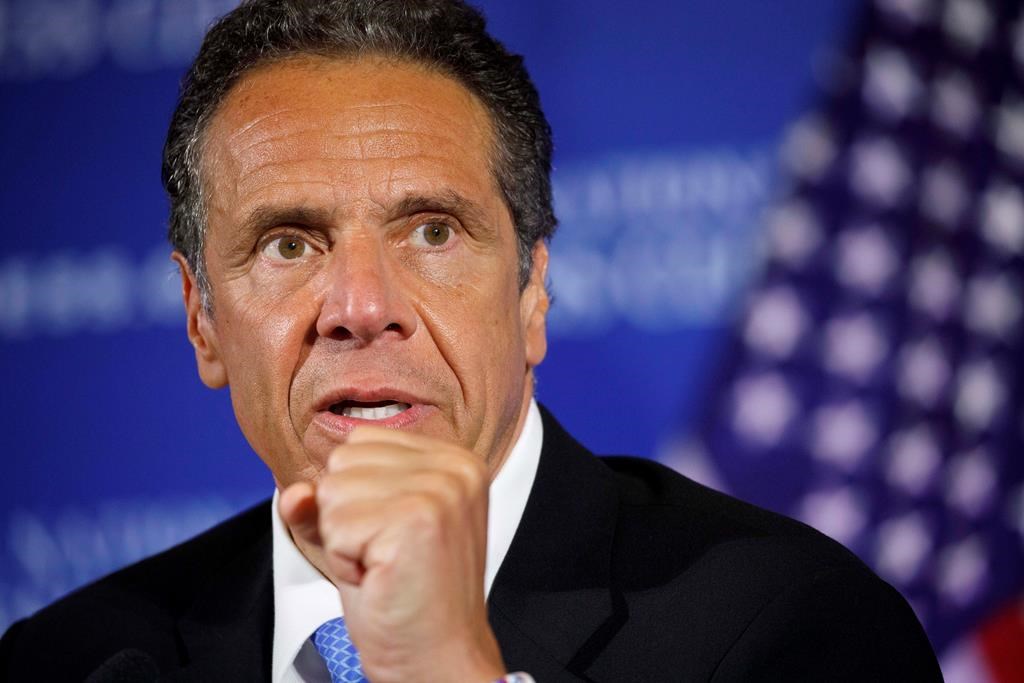
New York Gov. Andrew Cuomo on Wednesday said he intends to remain in office in the face of sexual harassment allegations that have weakened his support and led to calls for his resignation.
The Democratic governor, speaking somberly in his first public appearance since three women accused him of inappropriate touching and offensive remarks, apologized and said that he “learned an important lesson” about his behaviour around women.
“I now understand that I acted in a way that made people feel uncomfortable,” Cuomo said. “It was unintentional and I truly and deeply apologize for it.”
Asked about calls for him to step aside, the third-term governor said: “I wasn’t elected by politicians, I was elected by the people of the state of New York. I’m not going to resign.”
Cuomo acknowledged “sensitivities have changed and behaviour has changed” and that what he considers his “customary greeting” — an old-world approach that often involving kisses and hugs — is no longer acceptable.
But the allegations against the governor go beyond aggressive greetings.
Former aide Lindsey Boylan accuses Cuomo of having harassed her throughout her employment and said he once suggesting a game of strip poker aboard his state-owned jet. Another former aide, Charlotte Bennett, said Cuomo once asked her if she ever had sex with older men.
Both women rejected Cuomo’s latest apology, doubling down on their disgust after he issued a statement Sunday attempting to excuse his behaviour as his way of being “playful.”
“How can New Yorkers trust you ?NYGovCuomo to lead our state if you `don’t know’ when you’ve been inappropriate with your own staff?” Boylan tweeted.
Cuomo said he will “fully co-operate” with an investigation into the allegations being overseen by the state’s independently elected attorney general. Attorney General Letitia James, also a Democrat, is in the process of selecting an outside law firm to conduct the probe and document its findings in a public report.
Cuomo addressed the allegations during a news conference that otherwise focused on the state’s response to the coronavirus pandemic, the kind of briefings that made him a daily fixture on TV and a national star among Democrats.
Before that, Cuomo last spoke to reporters during a conference call on Feb. 22. His last briefing on camera was Feb. 19.
Two of the women accusing Cuomo worked in his administration. The other was a guest at a wedding that he officiated.
Bennett, 25, said Cuomo quizzed her about her sex life, asked if she felt age made a difference in relationships and said that he was fine dating “anyone above the age of 22.” Bennett said she believed he was gauging her interest in an affair. Cuomo has denied making advances at Bennett.
Boylan, 36, said Cuomo commented on her appearance inappropriately, kissed her without her consent at the end of a meeting and went out of his way to touch her on her lower back, arms and legs. Cuomo has denied Boylan’s allegations.
Anna Ruch told The New York Times that Cuomo put his hands on her face and asked if he could kiss her just moments after they met at a September 2019 wedding in Manhattan.
Bennett’s lawyer, Debra Katz, said the governor’s news conference “was full of falsehoods and inaccurate information.”
She said Cuomo’s claim that he was unaware he had made women uncomfortable was disingenuous, considering that Bennett had reported his behaviour to her boss and one of Cuomo’s lawyers.
“We are confident that they made him aware of her complaint and we fully expect that the Attorney General’s investigation will demonstrate that Cuomo administration officials failed to act on Ms. Bennett’s serious allegations or to ensure that corrective measures were taken, in violation of their legal requirements,” Katz said.
Cuomo’s support has plummeted amid a one-two punch of scandals, and even some Democrats have called on him to step aside. The harassment allegations follow accusations that Cuomo covered up the true COVID-19 death toll on nursing home residents.
“I don’t think it’s in his DNA to resign or back down,” said Queens Assembly member Ron Kim, a Democrat who accused Cuomo of bullying him over the nursing home issue. “I think he will do whatever it takes to fight this.”
Cuomo said he inherited his gregarious way of greeting people from his father, the late former Gov. Mario Cuomo, and that he intended it as a way of welcoming people and making them feel comfortable. He said he realizes now, “it doesn’t matter my intent, what it matters is if anybody was offended by it.”
Speaking about the allegations, Cuomo initially said he was apologizing to “people” who were uncomfortable with his conduct, but he didn’t make clear as he continued which of the women he was referring to.
At one point, he said he was apologizing to “the young woman who worked here who said that I made her feel uncomfortable in the workplace,” though that description could apply to both Boylan and Bennett.
Asked what he was saying to New Yorkers, Cuomo said: “I’m embarrassed by what happened… I’m embarrassed that someone felt that way in my administration. I’m embarrassed and hurt and I apologize that somebody who interacted with me felt that way.”
The governor, who has touted a law requiring all workers in New York to receive sexual harassment training, said he felt at the time that his behaviour was innocuous but now acknowledges that sexual harassment centres on how the victim is impacted _ not the offender’s intent.
“I didn’t know at the time I was making her feel uncomfortable. I never meant to, but that doesn’t matter,” Cuomo said. “If a person feels uncomfortable, if a person feels pain, if a person is offended, I feel very badly about that and I apologize for it. There’s no but _ it’s, ‘I’m sorry.”’

Air Canada has agreed to refund passengers who had their flights cancelled or postponed during the pandemic, according to Unifor.
“The company (Air Canada) has agreed to Ottawa’s crucial demand to repay the many customers who weren’t reimbursed for their plane tickets,” a Unifor representative tells 680 NEWS.
When asked for comment, Air Canada did not confirm the news, a spokesperson for the airline referred to a Feb. 12, 2021 statement that indicated discussions with the federal government are ongoing.
Unifor represents airline workers at Air Canada as well as other airlines in the country and has been pushing for an aid package for the Canadian airline sector.
The issue of passenger refunds has been a key part of those talks, with Ottawa saying that any financial support is contingent on refunds.
In December, the federal government directed the Canadian Transportation Agency, which oversees issues related to passenger rights, to strengthen rules that require airlines to refund travellers for cancelled flights.
However, those rules would have only applied to future cancellations and would not be retroactive.
Consumer rights group Air Passenger Rights has estimated that as of Sept. 30, around 3.9 million air passengers including those with Air Canada have been denied a refund for flights they did not take.
